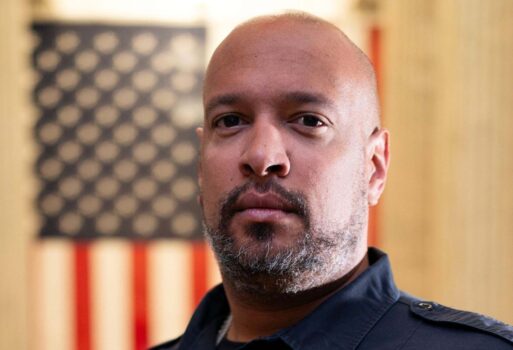Earnhardt Speaker Series to host former capitol police officer and Congressional candidate Harry Dunn
Published 12:00 am Thursday, March 14, 2024
MISENHEIMER — The Eugene I. Earnhardt Speaker Series, created in honor of Gene Earnhardt, a professor emeritus of history at Pfeiffer University, who was known for bringing historically important — and sometimes controversial — figures to the university’s campus, will host Harry Dunn as its third lecturer on March 18.
Dunn, a former U.S. capitol police officer, was on duty on Jan. 6, 2021, and defended the Capitol during the attacks of that day. He later testified before the bipartisan Jan. 6th Commission, alongside three other officers, describing in detail the violence and hostility he witnessed. Dunn also recounted the racial slurs he endured as a part of the incident. In addition to other public reflections, he has also recorded his account of the events of that day in his memoir, “Standing My Ground: A Capitol Officer’s Fight for Accountability and Good Trouble After January 6th.”
During his 15 years with the Capitol Police, Dunn provided security for scores of major events at the Capitol, including presidential inaugurations, joint sessions of Congress, and State of the Union addresses. Dunn served as a crisis intervention officer responsible for assisting individuals who may be experiencing a mental crisis, and as a member of Capitol Police crisis negotiation teams trained to respond to hostage or barricade situations. He worked to promote equity, diversity and inclusion within the Capitol Police force, and received accolades for his exemplary service, including the Capitol Police Service Medal, the Capitol Police Achievement Medal, a Capitol Police Commendation and a Congressional Gold Medal.
Dunn was awarded the Presidential Citizens Medal two years after the Capitol attack on Jan. 6. In January 2024, he announced his run for Congress, hoping to replace retiring Rep. John Sarbanes of Maryland’s third district. Dunn is among several other Democratic hopefuls running for Sarbanes’ seat; the Democratic primary will be held on May 14. If Dunn’s campaign is successful, he would be the second Capitol Hill Police officer to serve as a member of Congress. The late Harry Reid, Democratic Senate leader, is the first.
Gene Earnhardt believed that universities offer space to discuss complex and culturally divisive issues. He was dedicated to helping students explore contrasting perspectives and engage in academic discourse examining social topics of the day.
“Our place as an institution of higher learning is to help our students learn to carefully assess and think critically about information in order to form their own opinions. Seeking to understand various perspectives with curiosity and respect is an important part of that process,” said Pfeiffer president Scott Bullard. “I think that’s what our beloved professor, Gene Earnhardt, sought to impart to the generations of students he taught. We are so grateful to be able to continue his legacy through this series.
Dunn will join Pfeiffer students for two class sessions during his visit to campus. A larger plenary session will take place in Merner Gymnasium at 11 a.m. on March 18. The free event is open to the public.
In preparation for Dunn’s visit, Dr. Michael Bitzer, will lead a March 15 discussion session for students. Bitzer is an expert on American politics and has been interviewed by numerous local, state, national, and international news outlets including The New York Times, The Washington Post, ABC, NBC, Fox, CNN, the BBC, France24 and others. Bitzer holds a Ph.D. from the School of Public and International Affairs at the University of Georgia and is currently chair of the Department of Politics at Catawba College. He will lead Pfeiffer students in an examination of the events and various perspectives influencing what occurred at the Capitol on Jan. 6, 2021.
“Our goal, for both the Dunn and Bitzer presentations, is to help our students learn how to be informed citizens who are critical thinkers and active participants in our democracy. These are essential parts of becoming an educated citizenry, no matter which side of the aisle you are on,” said Dr. Daniel Mynatt, Pfeiffer’s provost and chair of the Earnhardt Speaker Series programming committee. “These types of discussions, which help students learn to think, reason, and process information and varying viewpoints, are among the most important aspects of the education we seek to provide,” he said.




